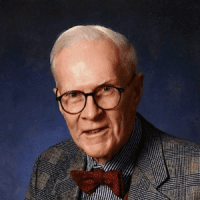Association staff have been occupied by a series of important AHA activities during the early fall months. The Bill of Rights Education Collaborative (BREC), funded by the Pew Charitable Trusts to sponsor a large number of educational enterprises marking the bicentennial of the Bill of Rights and involving schools, colleges, museums, and libraries in many parts of the country, has absorbed much time and energy. The American Political Science Association, which worked jointly with us on the 1977-87 Project `87 for the Constitutional bicentenary, is again our close partner for the BREC and is providing office space for the project as well.
We are involved also in planning for a major Columbus quincentennial undertaking, which we hope will result in a catalogue/directory of source materials relating to the Hispanic experience since 1492 in United States repositories. We have worked with our affiliate, the Conference on Latin American History, for some time discussing such a project, and we hope soon to be in the final grant proposal stage in order to elicit foundation support for the 1992 Columbus observances.
The AHA’s own Quincentennial Committee is preparing three pamphlets to be available next year. We have also been cheering from the sidelines and giving some help to the proposal of an experienced group of film producers, aided by a stellar cast of historical advisors, to produce a series of four programs on the world of 1450–92 and the interaction of cultures that followed. The sensitivities of the descendents of many of the involuntary players in four continents, Europe, Africa, North and South America during the period and the many differences between historical interpretations of parts of the global whole, make the project a difficult one to balance in a way which will please funders, viewers, and historical specialists. We hope for success and a brilliant contribution to history teaching worthy to be compared to the splendid PBS Civil War series funded by General Motors and NEH among others.
A number of other publication projects by the AHA are under way. Many members will have seen the first of the splendid pamphlets for teachers on global and comparative history being edited by Michael Adas of Rutgers University. The first one off the press, getting the jump on the quincentenary, was Alfred W. Crosby’s The Columbian Voyages, the Columbian Exchange, and Their Histories; it has won plaudits for its comprehensive overview of the subject. William H. NcNeill’s The Age of Gunpowder Empires, 1450–1800 is also available and an equally impressive tour de force. We expect to bring out three more in the next few months. We foresee this twenty-four pamphlet series providing the kind of practical and valuable support to teachers at all levels that the old AHA Service Center for Teachers of History did in the 1960s.
We are even further along with our teaching pamphlet series on American history, which emphasizes historiography. Temple University Press has brought out in a book form this series of thirteen pamphlets on chronological and topical themes in U.S. history (see p. 7) edited by Eric Foner, Columbia University. Under our agreement with Temple, we are entitled next year to break out the separate chapters, clap soft covers on them, and sell them as individual pamphlets.
Overall meeting season for major AHA standing committees has also begun. The Teaching Division Committee of the AHA met on Saturday, September 22, to deal with a number of important proposals. It timed its meeting to permit several participants in the organizational meeting of the National History Education Network (See p. 3) to meet with the Division, and it strongly recommended to the Council approval of the mission and goals statement of NHEN and the authorization of AHA participation. The new organization is envisaged as a coalition of many groups interested in and active in precollegiate history education, to provide the kind of advocacy and support at the state level that Dr. Page Putnam Miller and the National Coordinating Committee do at the national government level for history education in general.
The Division also recommended to the Council approval of a new category of membership for precollegiate teachers, which would bring a selection of membership materials from several organizations, chiefly the Society for History Education’s History Teacher, the Organization of History Teachers newsletter, and the AHA’s Perspectives and annual meeting program.
The Teaching Division also devoted attention to the subject of prizes and awards for teaching. It discussed and referred to the Council for approval proposed guidelines for a new award for mentoring, to be named in honor of Nancy L. Roelker, professor emerita at Brown University. A handsome endowment has been raised by Professor Roelker’s many former students, friends and admirers, and the Council’s approval is sought for the AHA to administer this award to recognize and honor a very special form of teaching. The Division also had some recommendations to simplify the rules for the Robinson Prize, awarded for the best teaching aid, and to increase its frequency.

